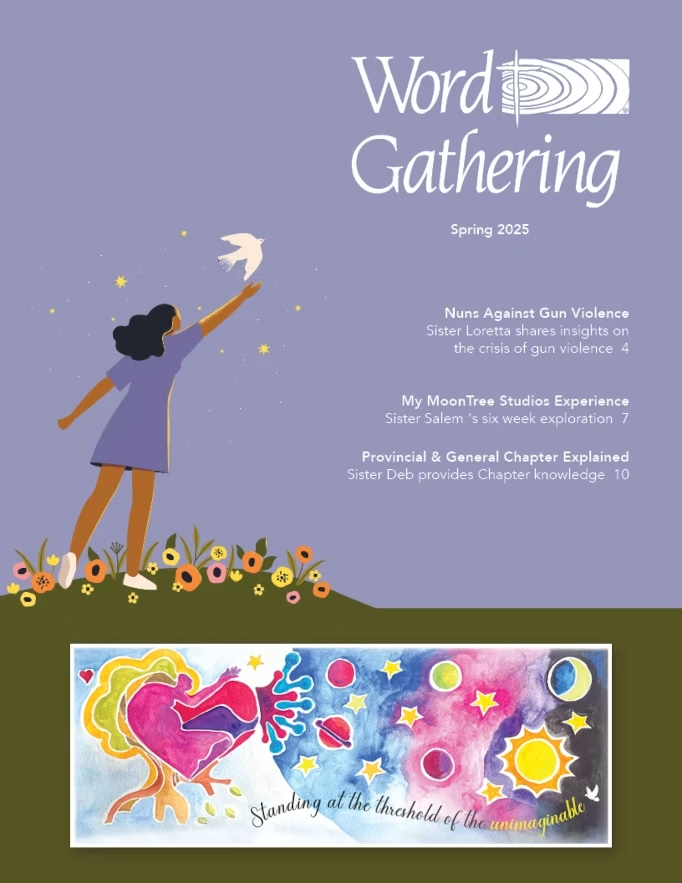Welcome to Word Gathering Online!

Here you’ll find additional content not found anywhere else and an inside look into Poor Handmaid ministries.
You can also find the digital version of the Spring 2025 Word Gathering.
We hope you enjoy this issue.


Here you’ll find additional content not found anywhere else and an inside look into Poor Handmaid ministries.
You can also find the digital version of the Spring 2025 Word Gathering.
We hope you enjoy this issue.